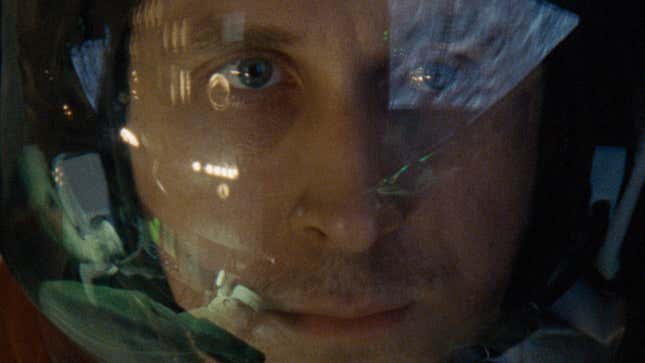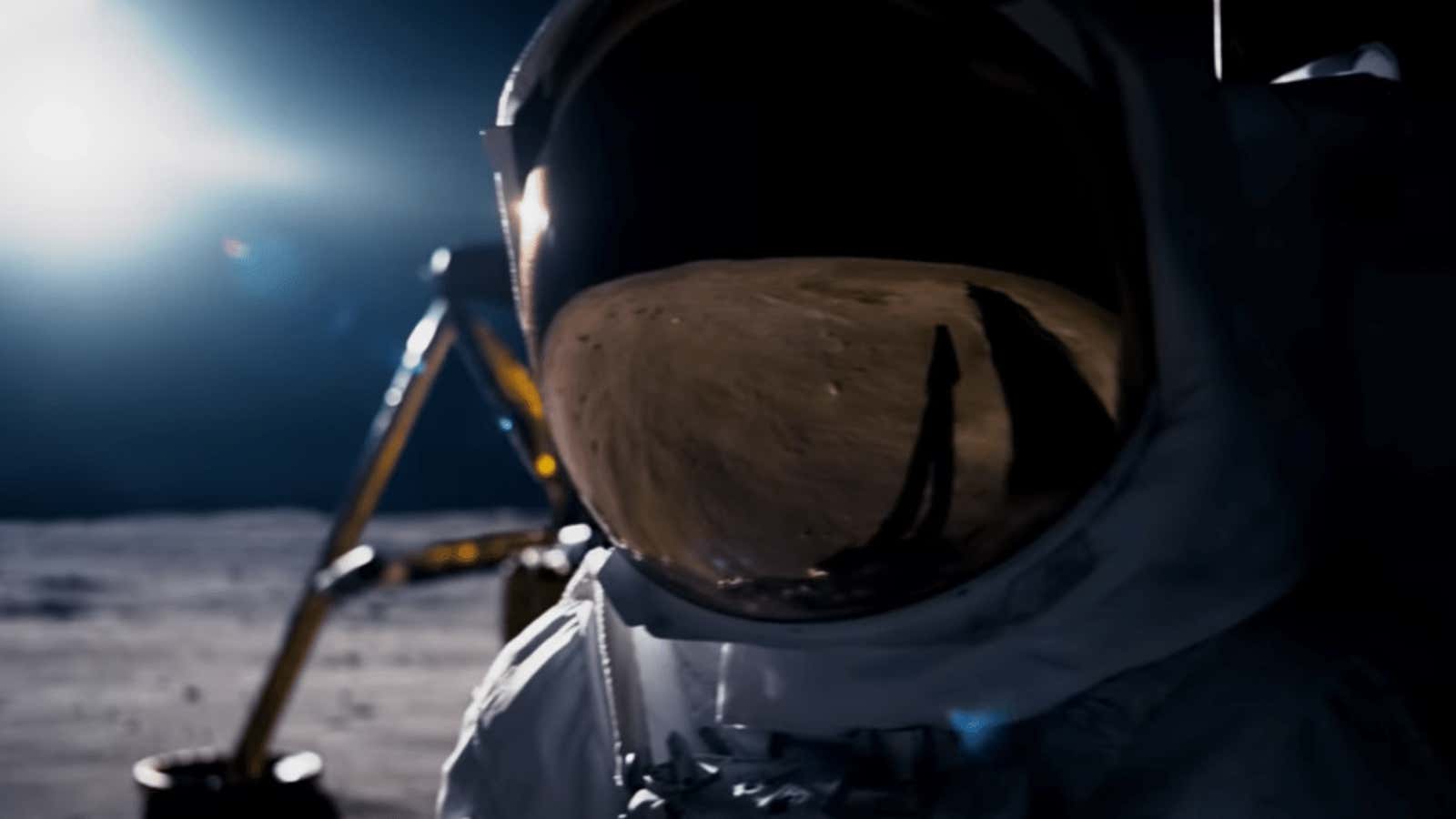This story contains spoilers about the upcoming film First Man, which hits theaters on Friday (Oct. 12).
You might not think that a film about Neil Armstrong and the 1969 Apollo 11 moon landing can even be “spoiled”—and you’d be right, strictly speaking. As we all know, the American astronaut eventually made it to the Moon. He came back alive.
But that’s not what the film is really about. First Man is the story of Armstrong’s journey inward, one that most people have probably never heard about before.
In 1962, seven years before Armstrong would set foot on the lunar surface, his only daughter, Karen, died from complications related to a malignant brain tumor, at the age of 2. Armstrong was then a pilot-engineer testing experimental planes for the US Air Force. Only a few months after Karen’s death, Armstrong applied to be an astronaut on NASA’s Project Gemini, the precursor to the Apollo program.
First Man, directed by Damien Chazelle, begins around this time, when Armstrong and his wife, Janet, are in a state of fresh grief, and the American space program is (literally) just getting off the ground. Everything that comes after—the Apollo test flights, the rocket launches, the ups and downs, successes and failures, and even the moon landing itself—is reframed by Chazelle. It’s not one man’s voyage into the unknown of space, but rather into his grief, and a loneliness that a lifetime of training could not prepare him for. First Man isn’t the giant leap for mankind. It’s Armstrong’s one small step, and it’s all the better for it.
Ryan Gosling, who has become Hollywood’s go-to leading man for roles that require steely aloofness, might not look or sound exactly like Armstrong did, but he captures the astronaut’s nature, according to those who knew him. Armstrong was extremely private, a tough nut to crack. Some of his closest friends reportedly didn’t even know he had a daughter who died.
In the film, Armstrong’s friend and fellow astronaut, Ed White, asks him about Karen, but he’s not interested in talking about it. He’s laser-focused on the mission at hand. More tragedy soon strikes; White and two other astronauts, Gus Grissom and Roger Chaffee, are killed in a catastrophic fire during a pre-launch rehearsal test for Apollo 1. Armstrong retreats further into himself and his work, while Janet (Claire Foy, who’s phenomenal in a mostly thankless role) and the couple’s two young sons worry that Neil will experience a similar fate.
When it’s finally time to go to the Moon, Janet forces Neil to sit the boys down and tell them their dad might never come home. The older son asks if he’ll ever see his father again, and Neil responds with the same canned non-response he gave to a reporter earlier: “We have every intention of coming back.” At that point, it’s clear that not only might he not make it back to Earth in one piece, but he also might not care that much whether he does.

Of course, we all know that he does return, and that Apollo 11 is a world-changing success. There were no explosions, no miraculous saves like in the infamous Apollo 13 mission that launched a year later. As these things go, Armstrong’s mission to the moon was smooth sailing.
Instead, the film shows us what blasting off into space does to a person, and, more importantly, what it can do for a person. For Neil Armstrong, the trip into the unknown is a trip into his own soul—he’s far less afraid to confront the wonders and perils of the universe than he is his own heartache. The mission isn’t a distraction from his grief; it’s very much a part of it.
For that reason, the film’s moon landing scene is a thrilling, powerful catharsis even though we’ve known the end result all along. Armstrong gets to the moon, says those famous words, bops around the lunar surface, and then, in one of the year’s most poignant cinematic moments, he finally says goodbye to his daughter. We half-expect to see her somewhere out there, waiting for him. But all he finds is dust.
